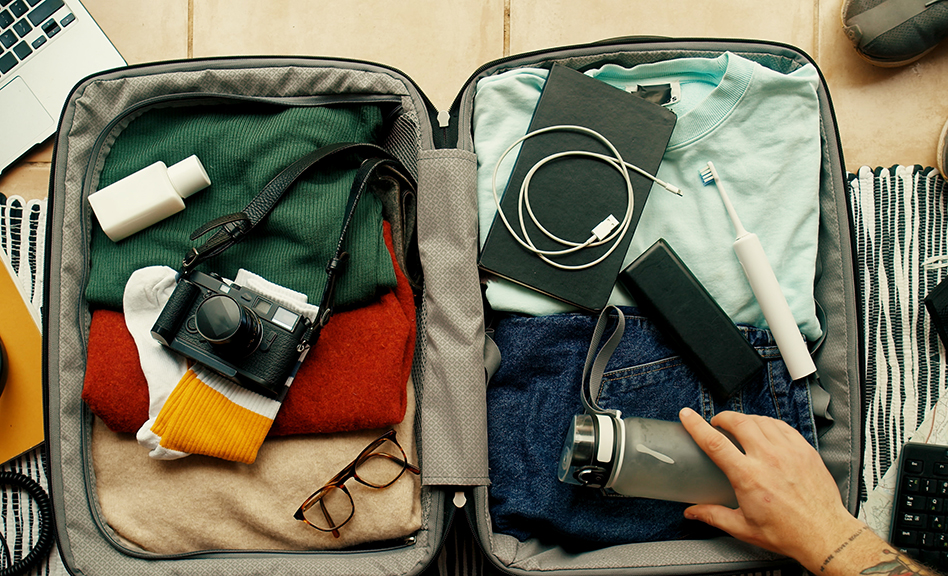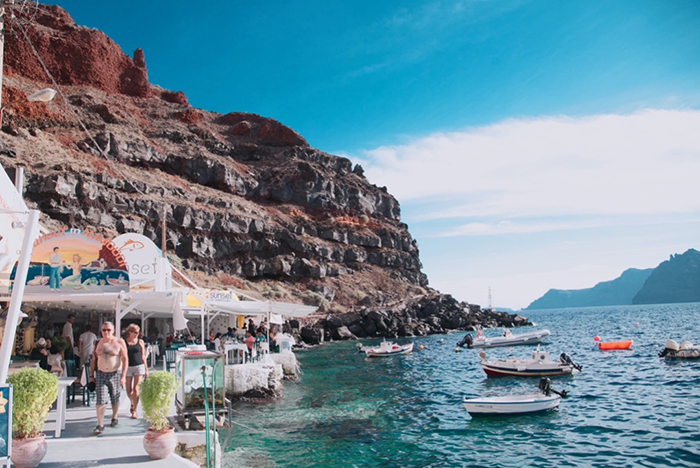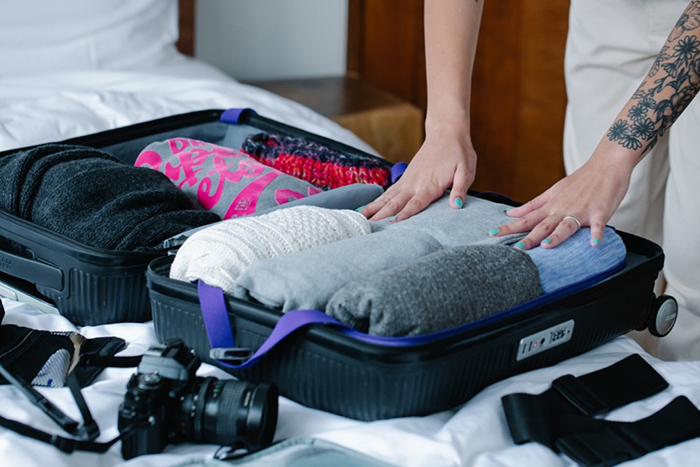POST
August 04 , 2022
Easy Prep for Your Next Trip
The Latest Dos and Don’ts of European Travel

Traveling out of the country for the first time (or for the first time in a long time) brings up a lot of emotions throughout the process – that’s part of the reason we love it! In addition to those exciting tingles of anticipation and liberation from the daily grind, moments of stress and bewilderment are normal. Even if you’re used to traveling abroad, the world is a changing place, so you might find new and more convenient ways of doing things.
These are our top European travel tips to avoid the headaches and get the most out of your trip.
STAY CHARGED
Don’t forget your charger! When you pack to leave home, and when you’re checking out of each hotel during your trip, make a habit of touching your passport, phone, and phone charger before you walk out the door.
In addition to the charging cable, you’ll also need a power adapter for foreign countries. This is what allows you to physically plug your device into the power socket. In general, Europe uses the ‘Europlug’, the Type C electrical outlet that has two round holes. Ireland is standardized with the United Kingdom, both using the Type G outlet. Broadly speaking, you probably don’t need a voltage adapter for Europe. These days, our phones, iPads and computers are designed with built-in dual voltage chargers. But if you’re traveling with something like camera equipment or a hair straightener, then double-check that it is labeled for both 110 and 220 volts.
Also, a portable power bank can be a lifesaver when traveling. On flights, it must be packed in your carry-on, not in checked baggage.

[Image by Mahesh Patel from Pixabay]
MAKE SMALL TALK
Even though many workers in the service and tourism industry will know some English, you can still find yourself smiling, pointing and nodding to communicate. Learning how to say some everyday phrases in the local language can go a long way, and also you’ll get a better sense of the rhythm of a place when you start to use the language. Before going to a new destination, watch a quick video about how to say phrases like ‘hello’, ‘please’, ‘thank you’, and ‘have a good day’. Also, be aware of commonly used gestures … handshakes and pecks on the cheek are regarded differently around the world.

[Image by Pavel Danilyuk from Pexels]
MIND YOUR MIDRIFF
In terms of local etiquette, just have a look around you. You won’t see a group of Italians having a picnic on the Spanish Steps, or Greek diners wearing bikinis and swim trunks in a beachside café. Here’s the golden rule: If the locals aren’t doing it, you shouldn’t be doing it either.
Dress appropriately for the occasion. Dinner out in most European cities is accompanied by a certain care for appearance. It’s really about having clothes that fit well. If you don’t know what to bring, black items are aways chic and easy to mix and match. When you visit a place of worship, keep your shoulders covered (and sometimes your head, for women). A light scarf can be your friend in many situations.
Some popular beach resorts have even started banning swimsuits beyond the beach – many Mediterraneans are getting tired of seeing swimsuits on the streets and in cafes, which they see as disrespectful behavior. Remember to bring a cover-up or a change of clothes for when you go for lunch, and you’re good to go!

[Image by jimmy teoh from Pexels]
GET LOST & FOUND
Having access to your phone plan and mobile data usage can be extremely helpful when traveling. You can check map apps, find restaurant recommendations on the go, pull up booking confirmations, call an Uber, or quickly remind yourself how to say ‘How much is it?’ in Italian. Before you leave, you’ll want to check with your provider about what kind of fees are involved in using your phone internationally (AT&T and Verizon have “$10 a day” international plans). You can also download maps and apps to use offline, just in case.
Having a map at your fingertips is a matter of convenience, as well as personal safety so you don’t get lost wandering around in a strange place. On the other hand, it also allows you to let yourself get lost and have the most meaningful experiences when you come across interesting local places. It’s always a good idea to pin or save your hotel location on the map, and then wander.

[Image by Anastasia Shuraeva from Pexels]
KNOW YOUR PAYMENT CARD
After COVID-19, the way transactions are carried out in most European countries has evolved with contactless payments being the norm. This system is not as common in all of North America, so you may have never tried the tap-and-pay method before. To figure out if your card can handle touchless payments, check for a WiFi symbol somewhere on the card or call your issuer. At this time, your contactless card may not always work overseas, so you have the option to use the chip reader when making payments as well.
It's still a good idea to carry some local currency with you – for things like tips and taxi rides – but not too much that you would seriously regret it if you get pickpocketed in a crowded area (particularly, be aware when riding the metro). Overall, you generally get a better deal by withdrawing local cash from an ATM rather than exchanging money at a bank or airport. Check with your card issuer about international ATM fees before you go.

[Image by Towfiqu barbhuiya on Unsplash]
PACK SMARTER
Strategic packing – this is a skill that even seasoned travelers are always trying to improve upon. The less stuff you have to carry around, the easier the vacation seems to be, so these are our best tips for packing more efficiently.
Don’t burden yourself with large bottles. It’s always amazing how far the smallest bottle of shampoo will go (or, even better, try a shampoo bar!). Invest in comfortable shoes that can go from day to night – and try inserts to make them even comfier. Speaking of footwear, don’t forget a bag for packing your dirty shoes (if you forget, a hotel shower cap works nicely to cover the soles). The best space-saving tip is to roll your clothes before packing, it just works. Clear packing cubes let you see what you have and help stay organized when visiting multiple hotels. Finally, leave space for souvenirs. You can also bring a small foldable tote bag that you can use as a carry on for extras and those last-minute gifts you’re bound to grab on the last day.

[Image by Timur Weber from Pexels]
Travel should be more eye-opening than nerve-wracking, so remember these tips when planning your next trip!